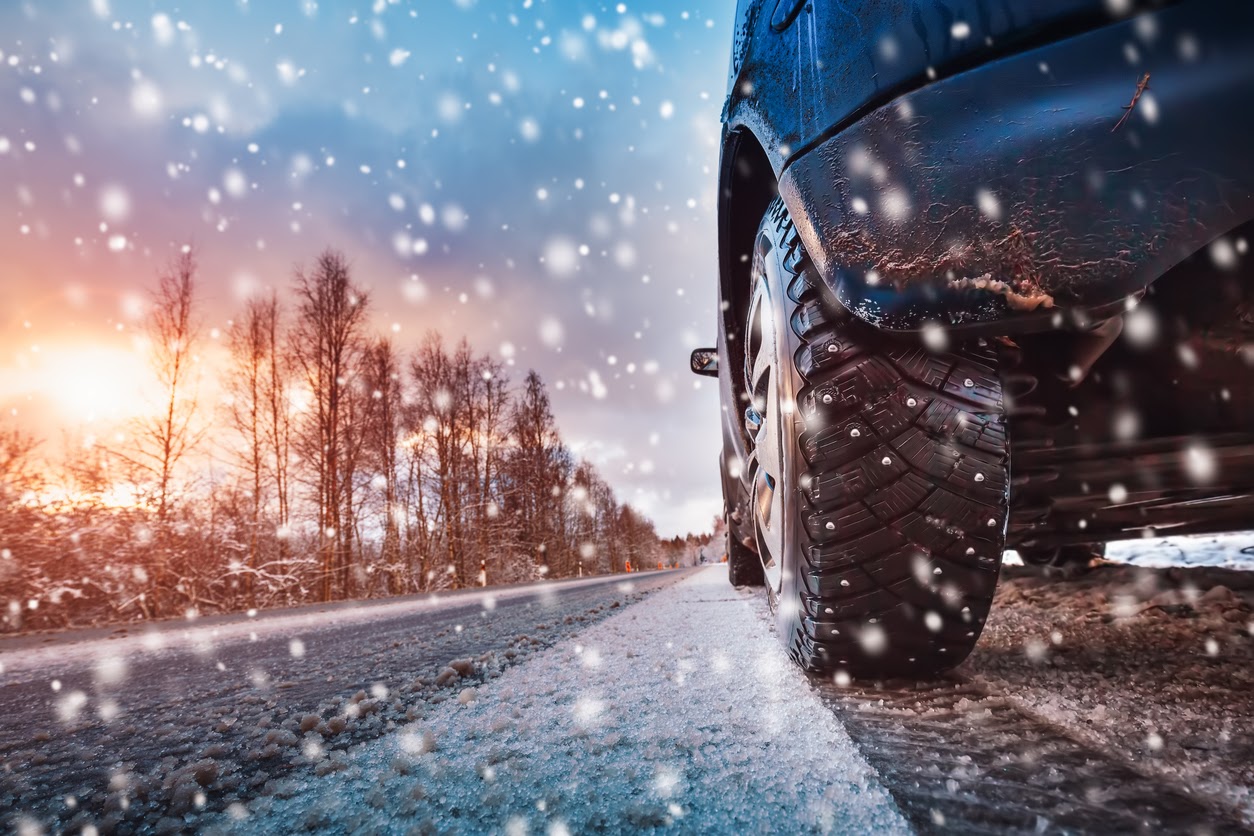

We’ve asked our service techs and mechanics to share some of their advice on easy maintenance tips and tricks to help keep you safer on the road. Today we’re highlighting the importance of properly inflated tires during winter weather months and cold temperatures. Check it out!
Winter Tire Pressure
Temperature changes overnight or from cold winter days can affect your tire pressure. This can cause the low-pressure indicator to appear. Large swings in temperature between day and night can affect the pressure in your tires by up to 10 PSI.
The light may shut off on its own after you drive 20 minutes or so, as the air in your tires warms and expands and proper inflation level stabilizes.
Regardless, you should get your air checked right away. The TPMS light means your tires are at least 25 percent below the proper air pressure. This is a safety risk, especially if you’re carrying a load close to your vehicle’s max capacity. There’s a greater chance of tire failure, compromised handling and increased wear and tear on your tires. Your gas mileage could also suffer.
When you top off your tires, the TPMS light will go off as the tire regains the proper pressure.
Note: If the warning light is flashing, this is a problem with the vehicle’s TPMS system, not your tires, and you should take your car to the shop.
Our service technicians are available to help at a moment’s notice!
Schedule an appointment today for routine maintenance and upkeep before winter weather arrives.
Schedule a Service Appointment Here


![[Facebook]](https://www.classickiaonline.com/blogs/294/wp-content/plugins/bookmarkify/facebook.png)
![[LinkedIn]](https://www.classickiaonline.com/blogs/294/wp-content/plugins/bookmarkify/linkedin.png)
![[Twitter]](https://www.classickiaonline.com/blogs/294/wp-content/plugins/bookmarkify/twitter.png)
![[Yahoo!]](https://www.classickiaonline.com/blogs/294/wp-content/plugins/bookmarkify/yahoo.png)
![[Email]](https://www.classickiaonline.com/blogs/294/wp-content/plugins/bookmarkify/email.png)



 Warranties include 10-year/100,000-mile powertrain and 5-year/60,000-mile basic. All warranties and roadside assistance are limited. See retailer for warranty details.
Warranties include 10-year/100,000-mile powertrain and 5-year/60,000-mile basic. All warranties and roadside assistance are limited. See retailer for warranty details.